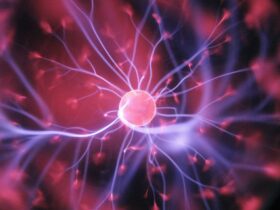Individuals who are stressed may gain peace by “shutting off” particular brain cells, according to a study published in the journal Science Advances. The study was conducted by scientists at Osaka University in Japan.
Scientists have discovered a set of brain cells that regulate anxiety-related behavioral patterns in mice via tests, according to the experts.
As per the study, the cells are located in the claustrum of the brain, a tiny section of the gray matter that links the prefrontal cortex as well as the thalamus, or the regions of the brain that are linked to focus, observation, awareness, cognition, remembering, communication, and consciousness.
Scientists discovered that when these cells were triggered using chemogenetic advanced technologies or medicines meant to excite them, the mice displayed anxiety-related traits, according to the findings. In contrast, the researchers found that deactivating the cells rendered rodents quite robust in the face of prolonged stressors.
According to the scientists, this suggests that the cells inside the claustrum might be used as a therapy target for medications that are intended to treat anxiety-related diseases.
Their finding was made possible through the employment of block-face serial microscopy tomography (also known as FAST), that was created by experts at Osaka University and was utilized to make the breakthrough, according to the authors. According to the study, the method enabled them to evaluate variations in cellular activity down to the level of individual cells.
The researchers used the FAST approach to obtain whole-brain pictures of normal mice as well as animals that had been subjected to stressful settings.
According to the scientists, the claustrum was determined to be a critical brain area that distinguished agitated minds from non-stressed brains out of the 22 areas of the brain that were analyzed.
An integrated strategy involving brain activity imaging and machine learning revealed that claustrum activation acts as a trustworthy indicator of response to intense stresses, the researchers said.















Leave a Reply